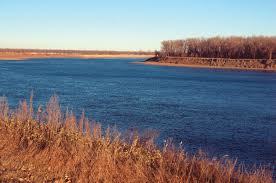Review of Last Call at the Oasis, edited by Karl Weber (Public Affairs, 2012), 272 pages, ISBN- 978-1586489786
Last Call at the Oasis is the book version of the fear-mongering movie of the same name. It is an amazingly bad presentation of groundless assertions of water scarcities occasionally interrupted by a few good chapters written by intelligent analysts presenting useful ideas. Accordingly, I cannot recommend Last Call at the Oasis.
However, the book does provide a useful opportunity to clear up some popular misconceptions about water issues, which I will do in this book review. Reviewing this book also gives me a chance to recommend an article I have written on water supply in this issue of Environment & Climate News, which points to some very positive water-related developments on the horizon.
Water Realities or Absurdities?
At the very beginning of Last Call at the Oasis, editor Karl Weber shows what a fool he is. The opening chapter, misleadingly titled “Water Realities,” should have been titled “Water Absurdities,” as nearly every paragraph is fraught with fallacies and lies. The chapter absurdly asserts Las Vegas is doomed due to water scarcity, the nation is running out of water, and pesticides and fracking solutions are causing rampant water pollution. Weber additionally claims human-induced climate change will make all these fictional problems worse.
In subsequent chapters, two contributors argue we must stop eating meat to preserve water supplies and save the environment. A third contributor, Robert Moran, claims water pollution is getting worse by the day, despite overwhelming evidence that water is becoming cleaner.
Moran writes, “There is a common assumption that we can develop natural resources on a large scale without significant environmental impacts. We need to lay that myth to rest once and for all.”
Wow! We can achieve technological advances in nearly every area of technology, but we cannot develop the earth’ resources without messing them up? Sadly, Moran’s statement reflects the antihuman assertions of most of the book’s contributors.
In case readers might be inclined to consider this an ideologically neutral book, Weber inserts a section in which the environmental activist group Natural Resources Defense Council lectures readers on “Ten Simple Ways You Can Help Protect Our Water.”
A Welcome, Strong Chapter
Sadly, the book’s environmental radicalism overshadows a few excellent discussions. For example, Robert Glennon contributes an excellent chapter called “Diamonds In Disguise.” Glennon’s correct premise is most water shortages are caused by the low value we place on water. We would solve many of our water concerns if we priced water in accordance with market demands, Glennon observes.
Solutions Abound
Many of the worries expressed in Last Call at the Oasis are simply fictitious. Some water concerns, however, are legitimate. Free market economics and technological advances offer a great deal of promise in solving these problems. You can read more about some of these potential solutions in “Water’s Growing Value Will Generate More Accessible Supply,” in this issue of Environment & Climate News.
Jay Lehr, Ph.D. ([email protected]) is science director of The Heartland Institute.





